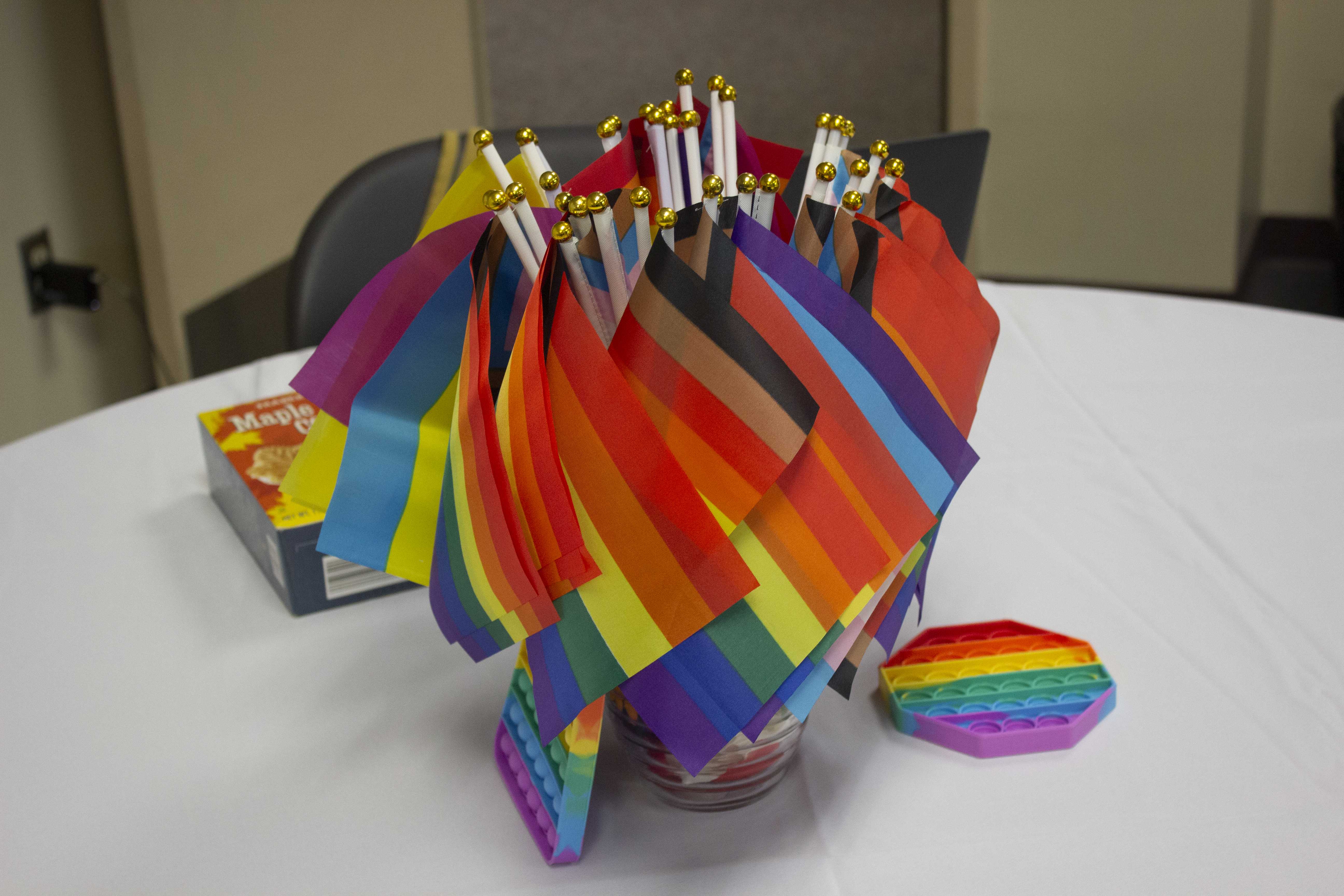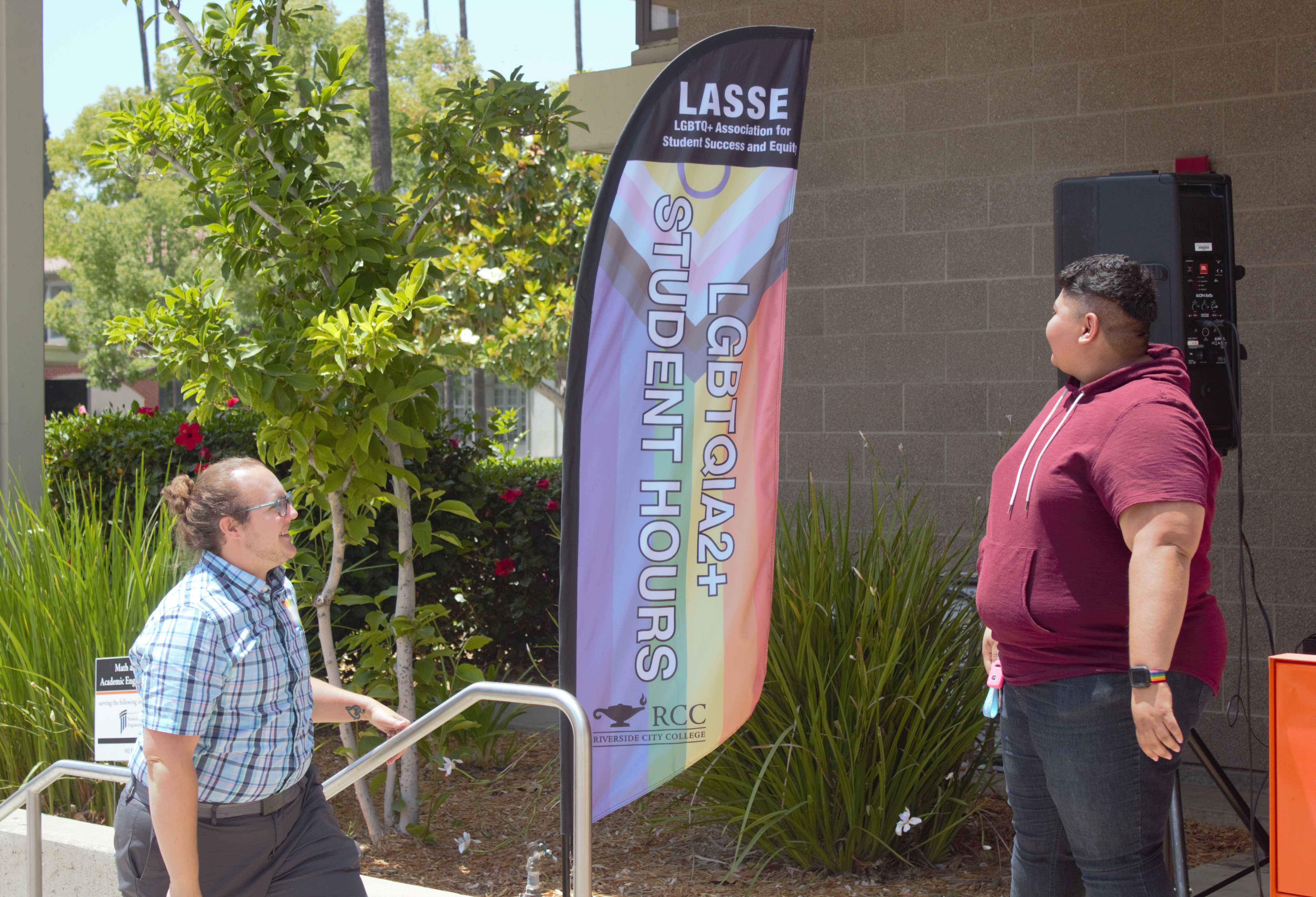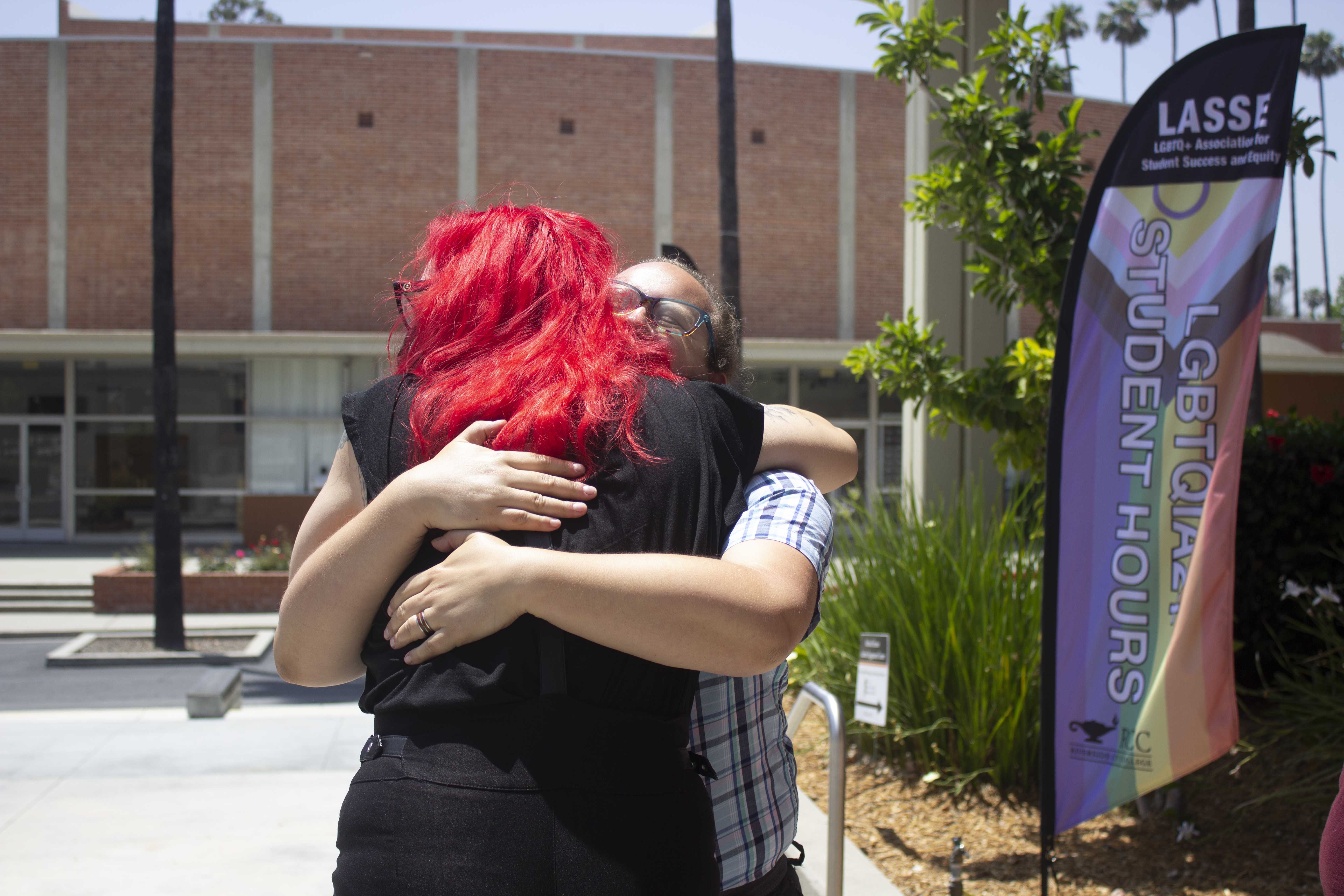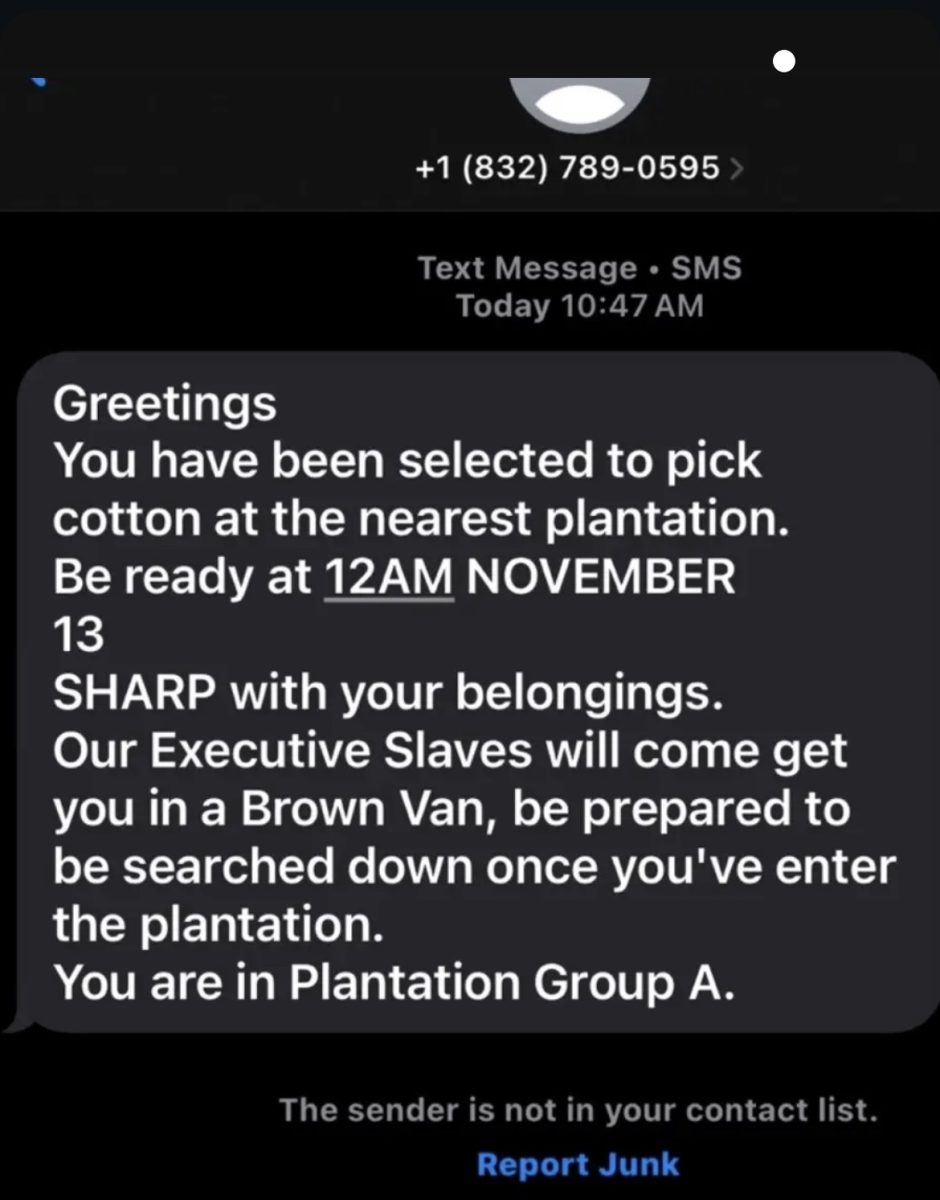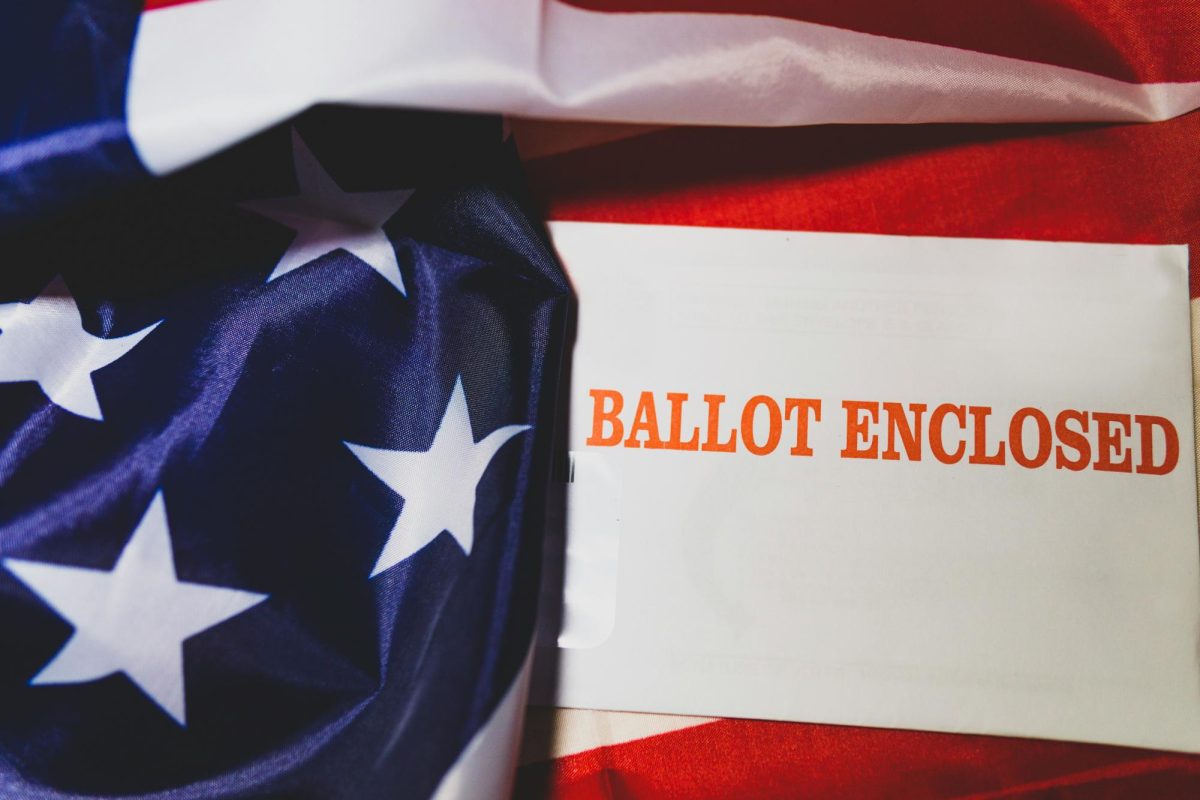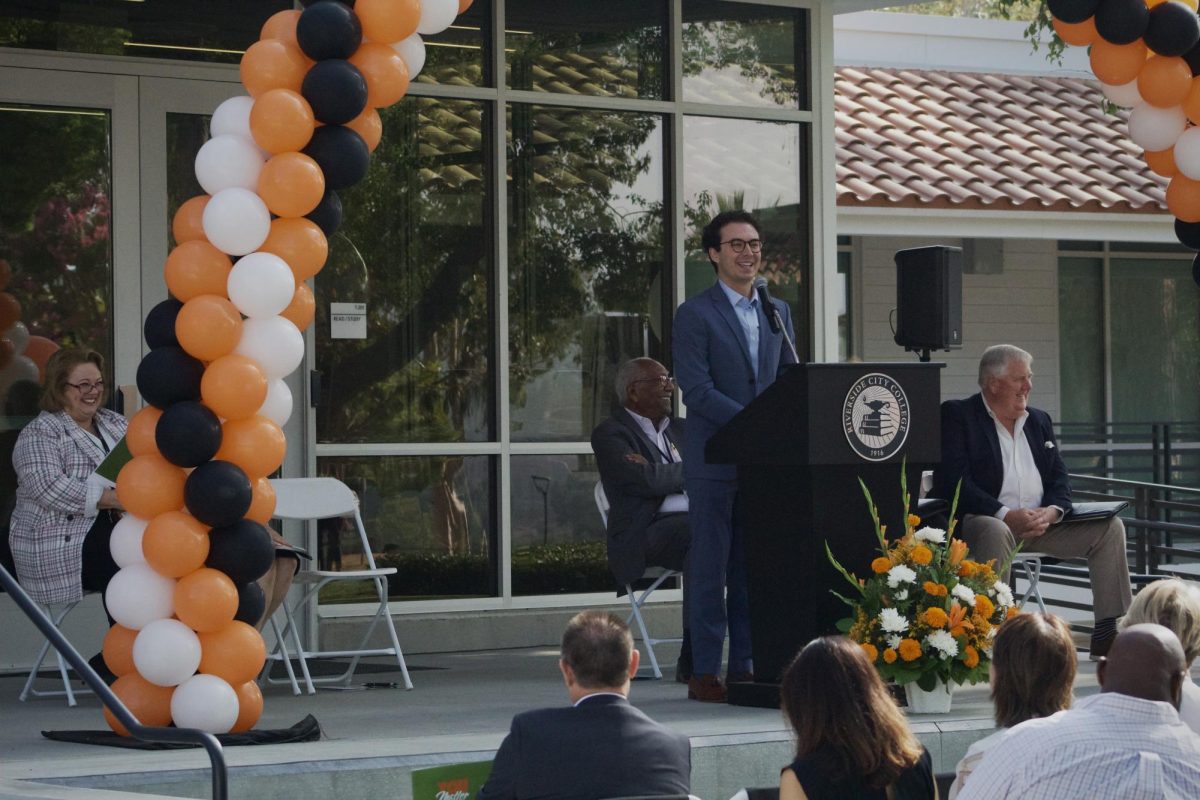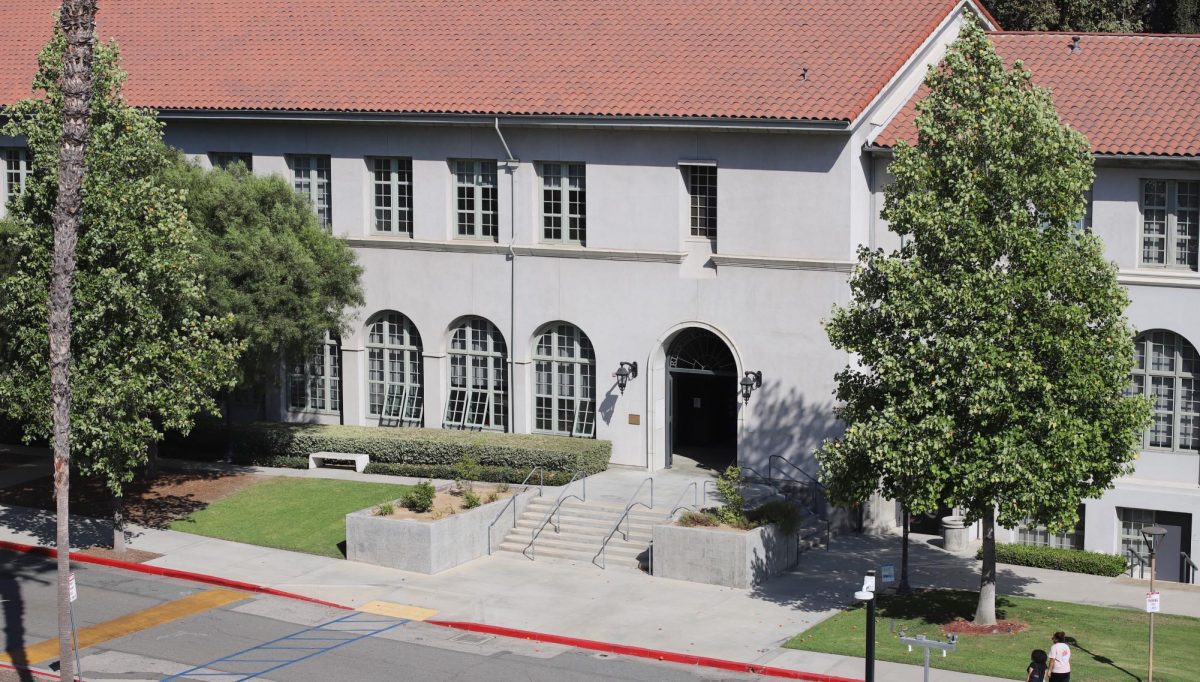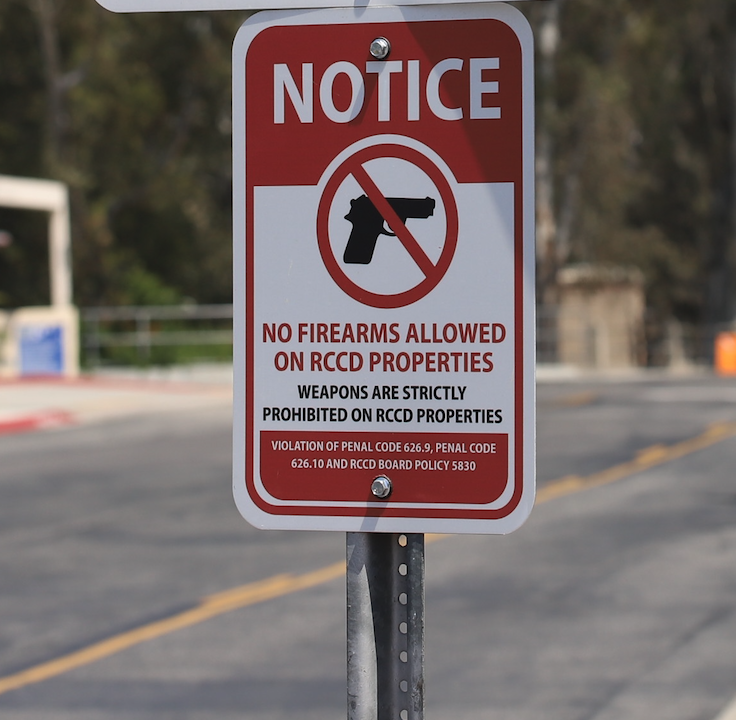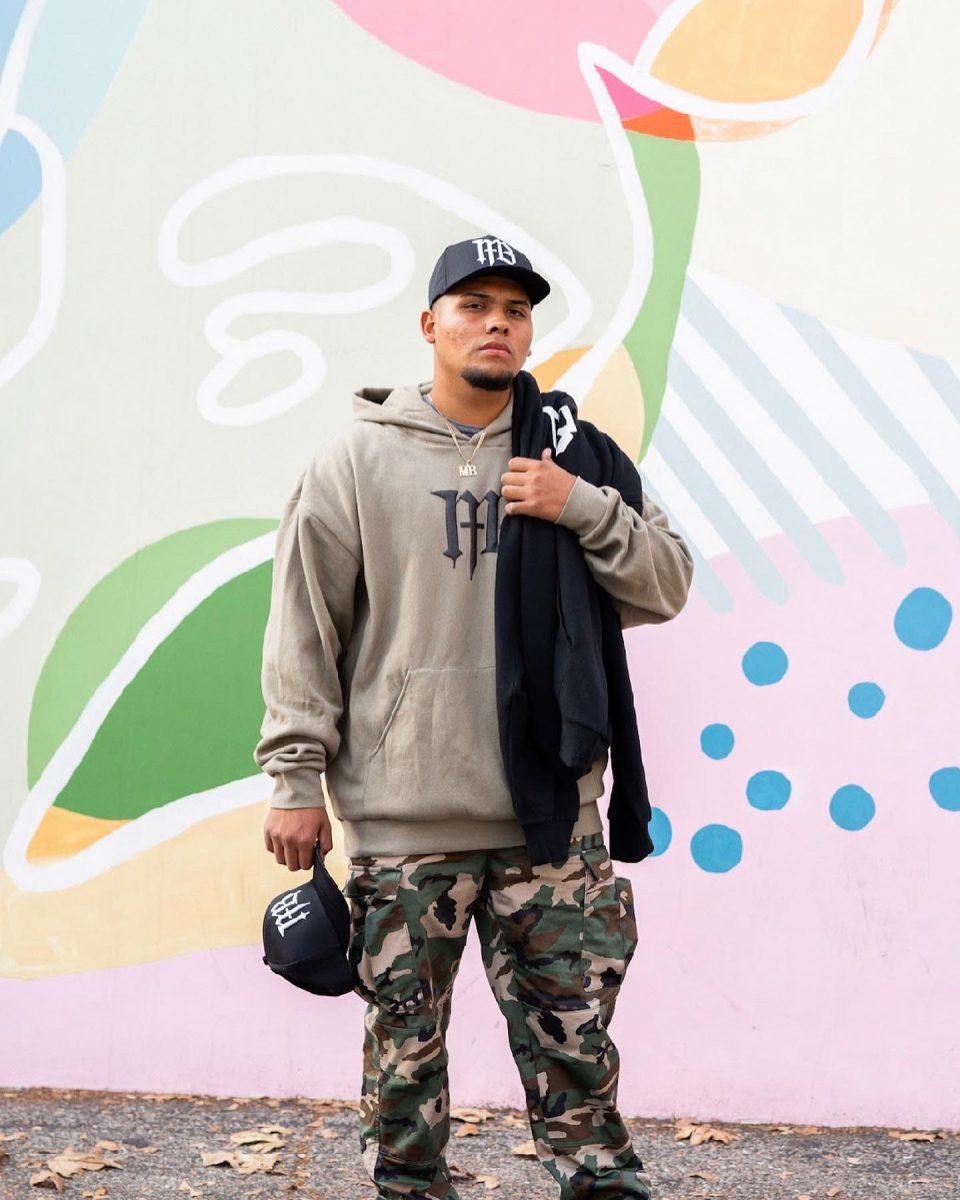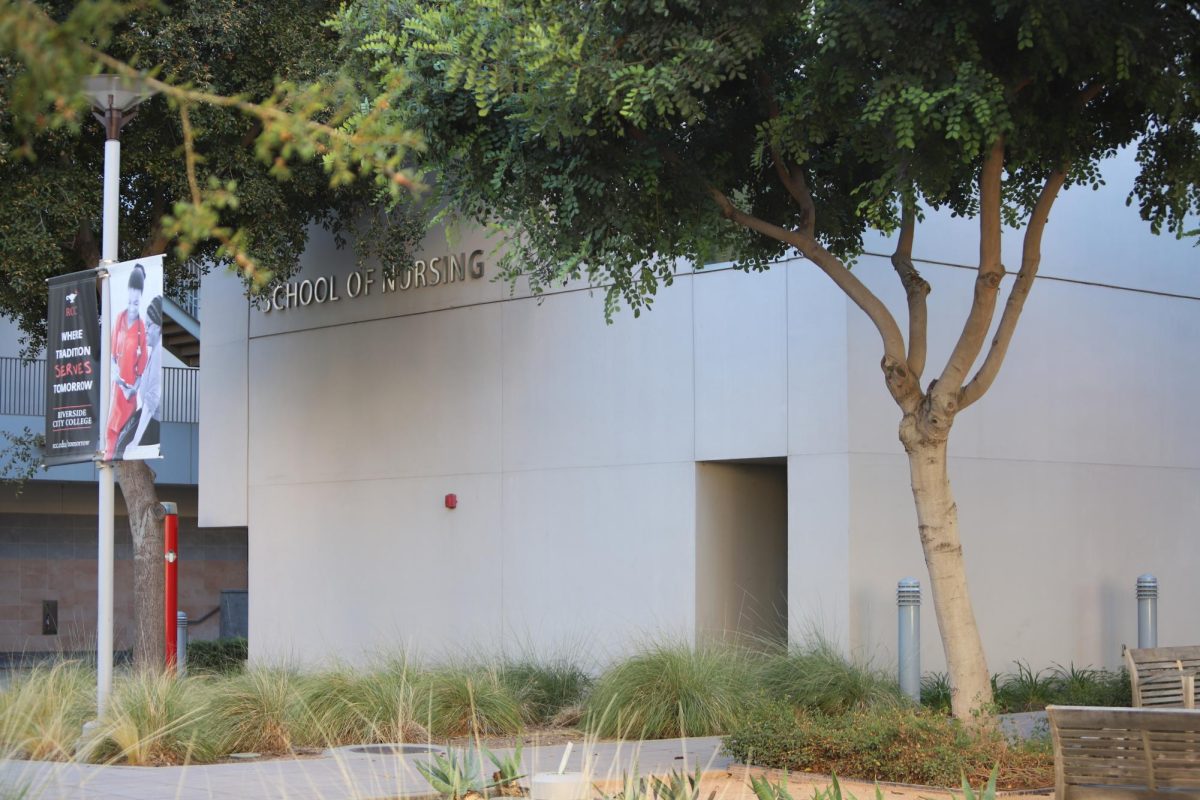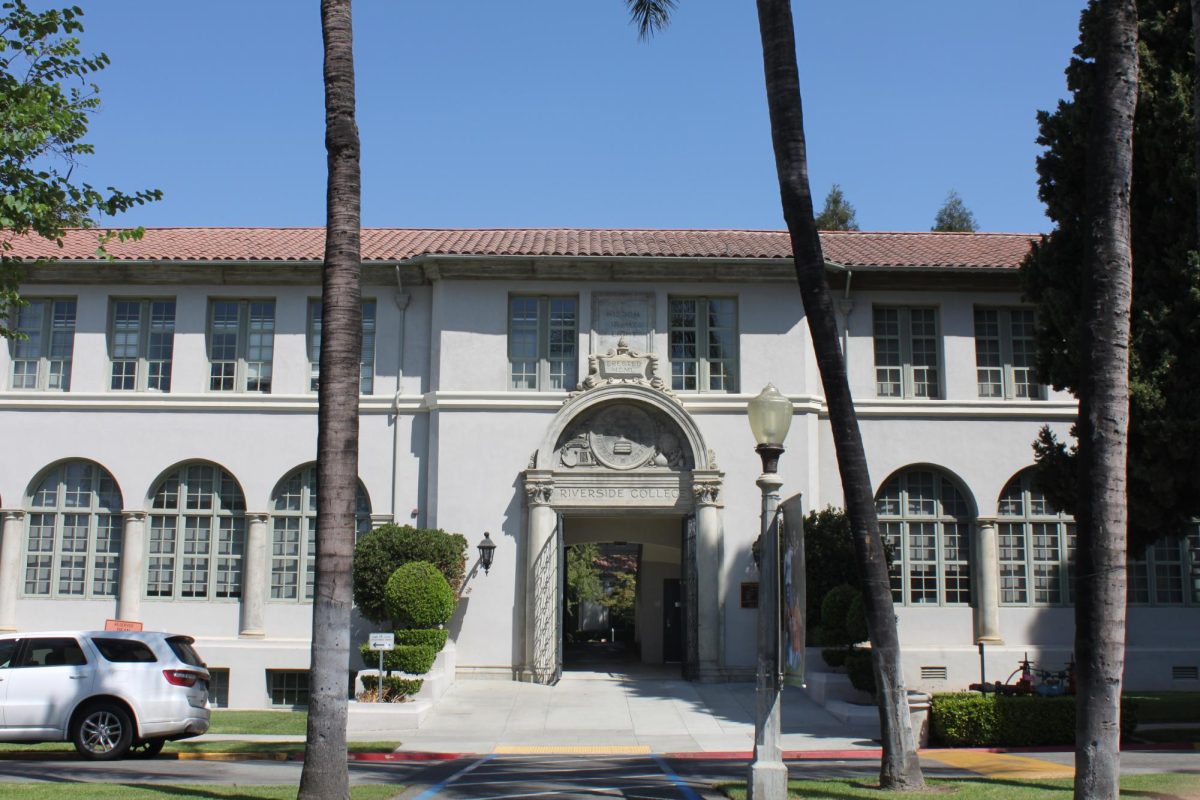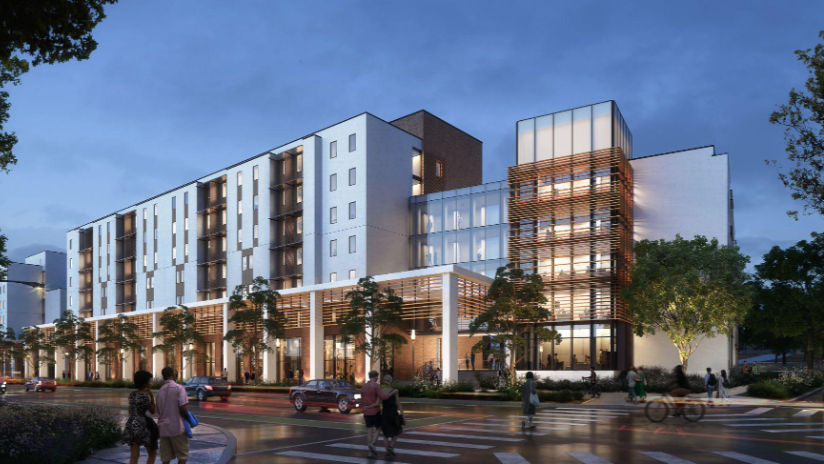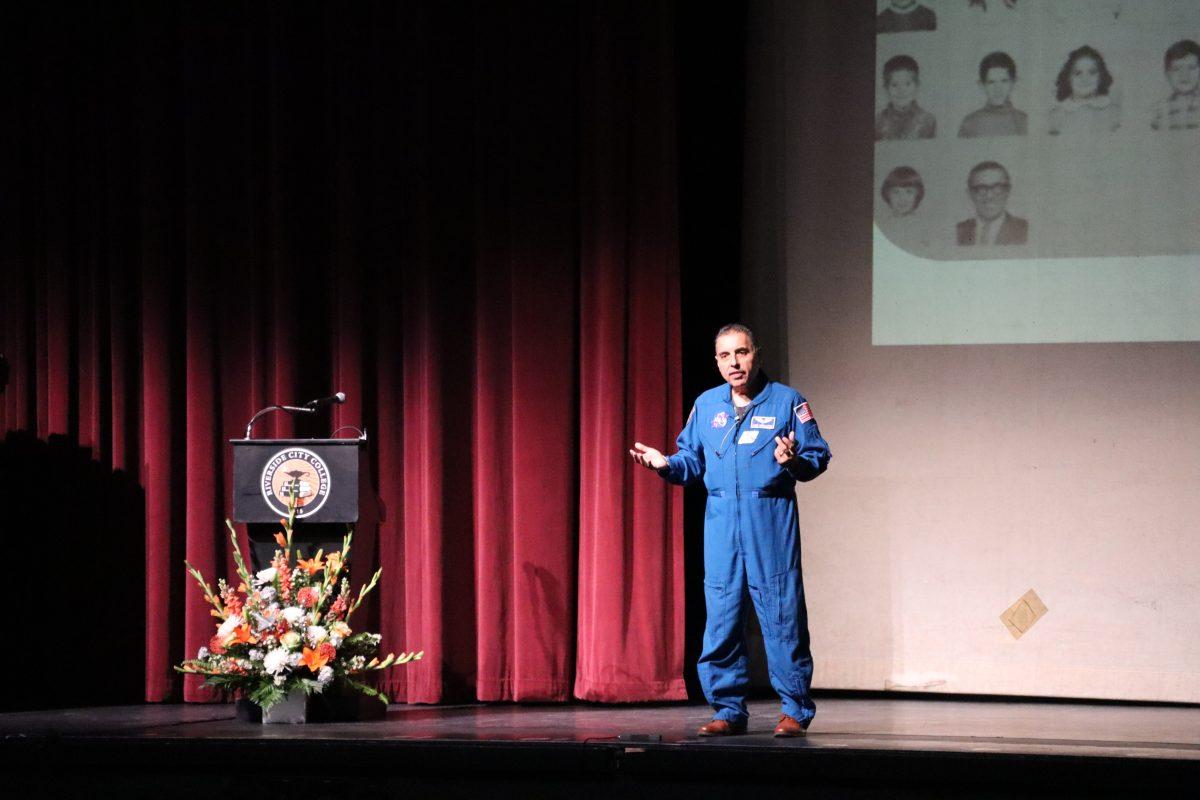By Alexandra Ugale Filarca
Riverside City College faculty members, Sexuality and Gender Acceptance club (SAGA) representatives and the LGBTQ+ Association for Student Success and Equity (LASSE) reached a milestone in visibility and representation on campus.
RCC celebrated the grand opening of the LGBTQIA2+ student hours May 19.
LASSE and SAGA faced many obstacles in recent years as faculty members and allies struggled to receive the services, student resource center and funding needed to support underrepresented students.
“The overall challenge (was) trying to find a room that wasn’t already marked with something else on campus,” said Théa Marie Seals, an instructional support specialist of the Writing and Reading Center and volunteer for LASSE.
They eventually acquired a space in the Martin Luther King Jr. Building.
“We have been fighting for so many years,” said Okami Harveinheit-Lucrey, an Associated Students of Riverside City College (ASRCC) senator and former SAGA president. “As soon as faculty came in, and there were more LGBT+ faculty, they were working with us. Administration decided to finally listen and help us out.”
Andrea Dillon, LASSE co-chair, said MLK 304 is a temporary space. She and others are still advocating for a permanent one.
The establishment of a LGBTQIA2+ student center was lengthy, but it is only the first step of a long journey to get the appropriate resources and safe space for the community.
LASSE and SAGA hope to accomplish more in order to accommodate students better as they continue to push for a permanent student resource center. Some things they would like to see are expansion, more student hours and more support and resources for students, according to Dillon.
“This opening is so important for the students who have not yet come out or (do) not yet understand themselves because now they have got a place to do so,” Harveinheit-Lucrey said. “It’s gonna do a lot for their mental state, health, safety, as well as their education to be surrounded by others who are just the same as them.”
Volunteers and students alike were pleased to have a communal space where they can nurture an environment that allows everyone to feel free to express themselves authentically.
“If I had a space where I could come and be okay being me, that would’ve meant the world to me,” said Seals. “That impact is immeasurable. That feeling of inclusion, of being seen and valued, is what matters to me. That is the reason why any of us are volunteering all (of) the time. We’re not getting paid extra for this – this is all just an act of love.”
Representatives from both clubs voiced other evolving issues affecting underserved students at RCC.
“Policy changes are a big one,” Dillon said. “We talk about inclusive restrooms, but they’re not always open. They’re few and far between and that’s not okay. We’re (also) focused on how to get inclusivity in classrooms.”
LGBTQIA2+ students echo this sentiment as these students are more likely to experience misgendering and dead-naming in a classroom setting.
“When I changed my pronouns to they/them, that was something I struggled with during high school,” Lila Rodriguez, a first-year film major, said. “I think teachers should be able to learn how to properly address people with their pronouns.”
Representatives said there are plenty of ways allies can support the LGBTQIA2+ community at RCC, including promoting visibility, creating safe spaces and learning about the issues the community faces.
“Advocating for our community and telling (people) that we are right here on campus (would help others) learn about us,” said Jennifer Shaw, vice president of SAGA. “Education is knowledge and power.”
Toi Thibodeaux, assistant director of the LGBT Resource Center at the University of California, Riverside, was invited to speak at the opening of the student hours.
Thibodeaux played an important role in establishing the BlaqOUT Conference in 2014 which provides a safe space for Black LGBTQIA2+ students.
She gave insight on how the student hours could grow in the coming years, including creating a “professionally-staffed center” to establish its legitimacy.
Thibodeaux also recommended looking into creating policies that aid marginalized students.
“Policies where students can have their lived name on documentations, or multi-stall gender-inclusive restrooms and the healthcare system (are some of them),” she said. “Really, it’s about putting in policies that can actually create change.”
LASSE, SAGA, faculty members and allies continue to push for change and more support for underrepresented students at RCC.
“It’s really about being here for the youth of today to make sure that they can be here tomorrow to help the next generation,” Thibodeaux said.

